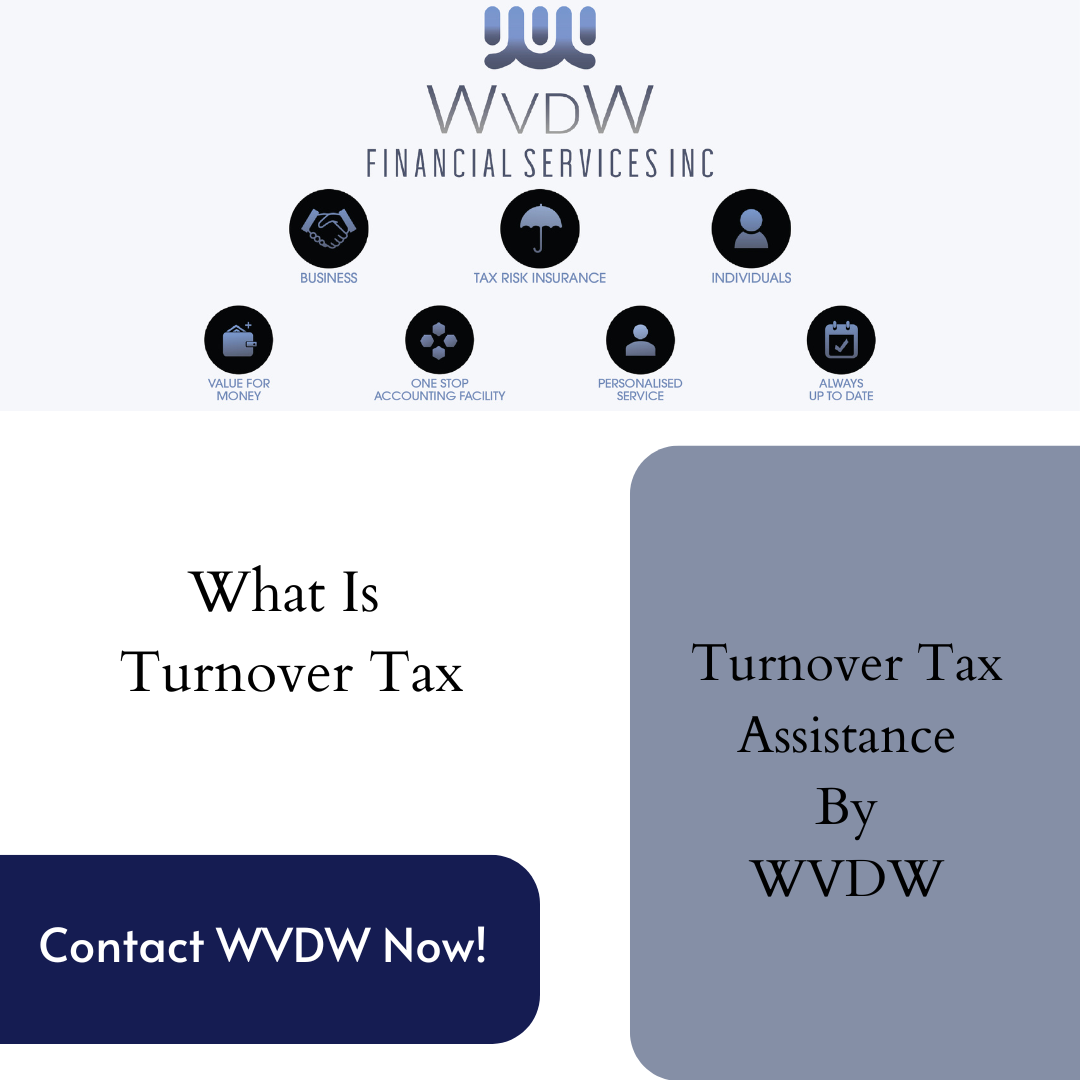Turnover Tax is a simplified tax system designed to reduce the tax burden and paperwork for small businesses in South Africa. Instead of paying multiple types of taxes, micro businesses pay a single tax based on their turnover (total income), making tax compliance easier.
Who Qualifies for Turnover Tax?
You can apply for Turnover Tax if your business meets the following conditions:
- Annual turnover (income) is R1 million or less
- Operates as a sole proprietor, partnership, close corporation (CC), co-operative, or private company (Pty) Ltd
- The owners and shareholders must be individuals (not other companies or trusts)
- Only South African residents can apply
Important!
Some businesses cannot register for Turnover Tax, including:
- Businesses that provide professional services (e.g., accountants, lawyers, consultants, architects)
- Those who have specific exclusions (explained below)
How is Turnover Tax Calculated?
Turnover Tax is not based on profit but on total business income. The rates are as follows:
| Annual Turnover (R) | Turnover Tax Payable |
| 0 – 335,000 | 0% (No tax) |
| 335,001 – 500,000 | 1% of turnover above R335,000 |
| 500,001 – 750,000 | R1,650 + 2% of turnover above R500,000 |
| 750,001 – 1,000,000 | R6,650 + 3% of turnover above R750,000 |
Example:
If your turnover is R600,000, the tax is calculated as:
- The first R335,000 = R0 tax
- The next R165,000 (R500,000 – R335,000) = 1% tax = R1,650
- The remaining R100,000 (R600,000 – R500,000) = 2% tax = R2,000
- Total tax payable = R1,650 + R2,000 = R3,650
Exclusions: Who Cannot Use Turnover Tax?
Some businesses are not allowed to use this system. These include:
- Businesses with more than R1 million turnover
- Professional services (lawyers, accountants, consultants, etc.)
- Businesses that have special licenses (e.g., liquor stores, casinos, financial services)
- Companies that own investment properties or earn rental income
- Businesses selling goods on consignment
- Companies where more than 20% of income comes from investments or dividends
Turnover Tax vs. Other Taxes
Businesses that use Turnover Tax do not have to pay:
- Income Tax
- VAT (if they choose not to register for VAT)
- Capital Gains Tax (for business assets)
However:
- If your turnover is above R1 million, you must register for VAT
- If your business employs people, you must register for PAYE and UIF
How to Register for Turnover Tax
- Apply online via SARS eFiling or visit a SARS branch
- Submit TT01 form before the beginning of the new tax year (1 March)
- Once accepted, you must stay on Turnover Tax for the full year
Turnover Tax Returns: What You Need to Do
Even though this tax system is simpler, you must still file returns:
- Twice a year (August and February) – TT02 return
- Pay tax in instalments (August and February)
If you do not submit on time, SARS may impose penalties or interest
Advantages & Disadvantages of Turnover Tax
Pros:
- Lower tax for businesses with small profit margins
- Simpler tax filing – less paperwork
- No need to calculate business expenses or deductions
Cons:
- You pay tax even if your business makes a loss
- No deductions for business expenses (like rent, salaries, stock, etc.)
- Not suitable for businesses with high costs and low margins
Conclusion: Is Turnover Tax Right for Your Business?
Turnover Tax is ideal for small businesses with low expenses and simple operations. If your business has high expenses, high turnover, or is a professional service, it may be better to stay on the normal tax system.
Before registering, set up a consultation with WVDW to check if this system benefits you!
If you have any queries, please contact our offices for assistance.
011 476 1112 info@wvdw.co.za
#WVDW #WVDWFinancialServices #bookkeepers #accountants #Tax #TurnoverTax

